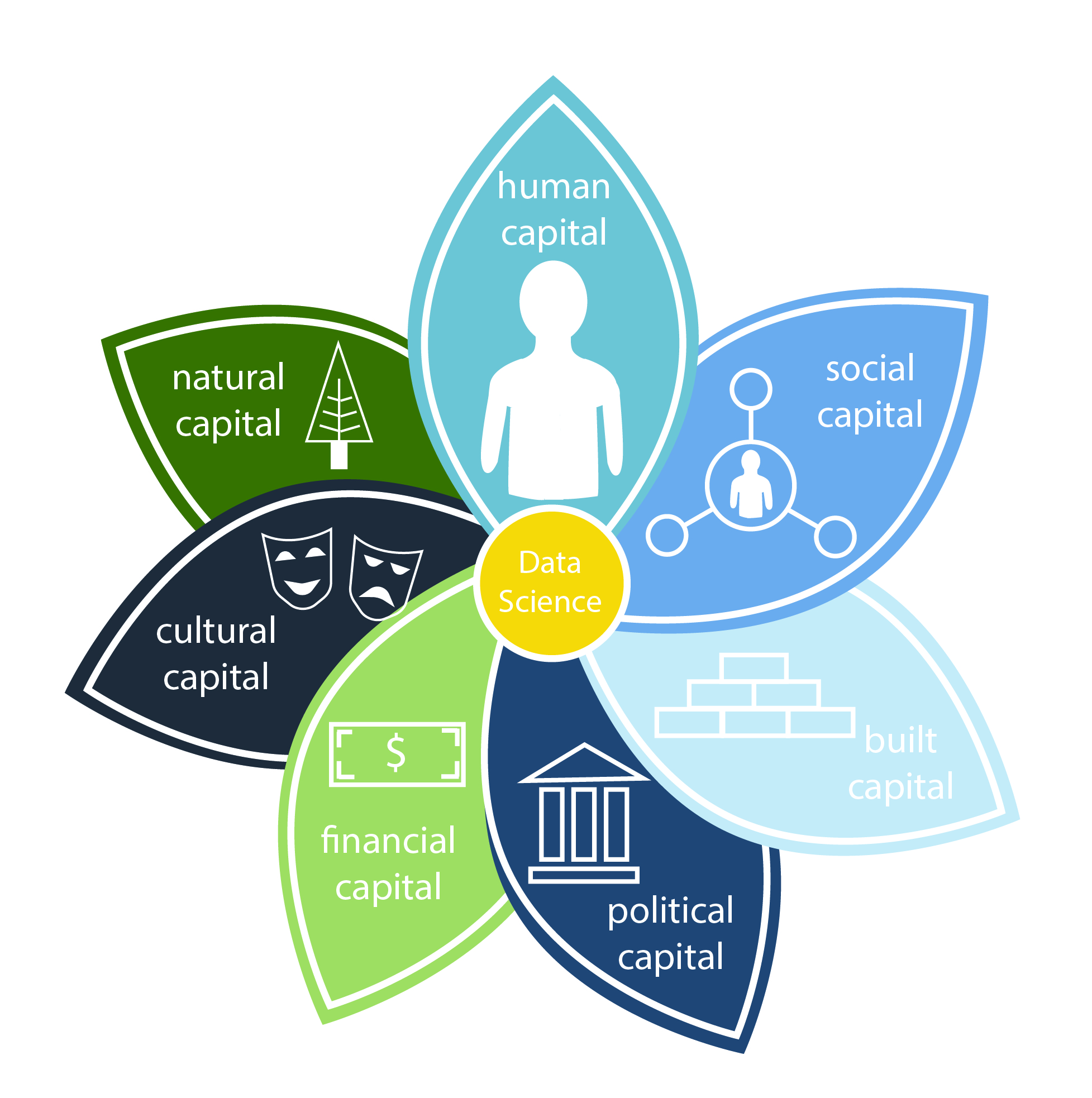Economic Mobility Data Infrastructure
The Economic Mobility Data Infrastructure extends the traditional Community Capitals Framework from a general theory that is often tested with assessments of single towns, to a large-scale, replicable, data-science-driven approach capable of analyzing vast geographies. Communities and their leaders can explore their assets across the seven capitals to potentially learn how economic mobility can improve.
As communities pursue positive changes in one capital area, they often create opportunities in others.
Our Economic Mobility Data Infrastructure does not provide specific recommendations for community action; however, it does provide data-insights about community strengths that can drive local conversations and spur action by community groups.

Community Capital Areas Defined
 Human Capital
Human Capital
Human capital refers to the knowledge, skills, education, credentials, physical health, mental health, and other acquired or inherited traits essential for an optimal quality of life.
 Cultural Capital
Cultural Capital
Cultural capital refers to the shared values, beliefs, dispositions, and perspectives that emanate from membership in a particular cultural group, often developing over generations, and provides a basis for collective efforts to solve community problems.
 Social Capital
Social Capital
Social capital refers to the resources, information, and support that communities can access through the bonds among members of the community and their families that promote mutual trust, reciprocity, collective identity, and a sense of a shared future.
 Built Capital
Built Capital
Built capital refers to the physical infrastructure that facilitates community activities, such as broadband and other information technologies, utilities, water/sewer systems, roads and bridges, business parks, hospitals, main street buildings, playgrounds, and housing.
 Financial Capital
Financial Capital
Financial capital refers to the economic features of the community such as debt capital, investment capital, savings, tax revenue, tax abatements, and grants, as well as entrepreneurship, persistent poverty, industry concentration, and philanthropy.
 Natural Capital
Natural Capital
Natural capital refers to the stock of natural or environmental ecosystem assets that provide a flow of useful goods or services to create possibilities and limits to community development, such as air, water, soil, biodiversity, and weather.
 Political Capital
Political Capital
Political capital refers to the ability of a community to influence and enforce rules, regulations, and standards through their organizations, connections, voice, and power as citizens.